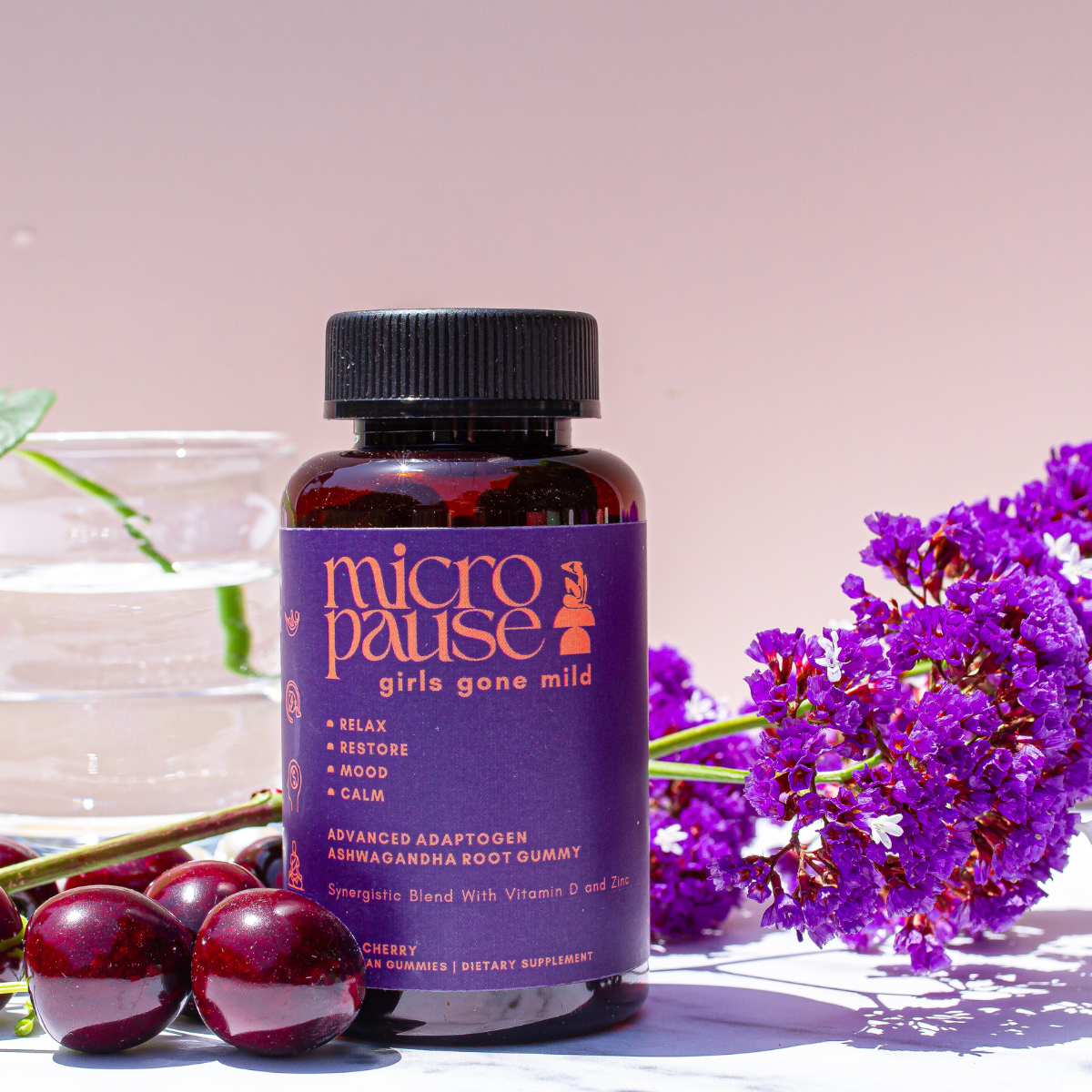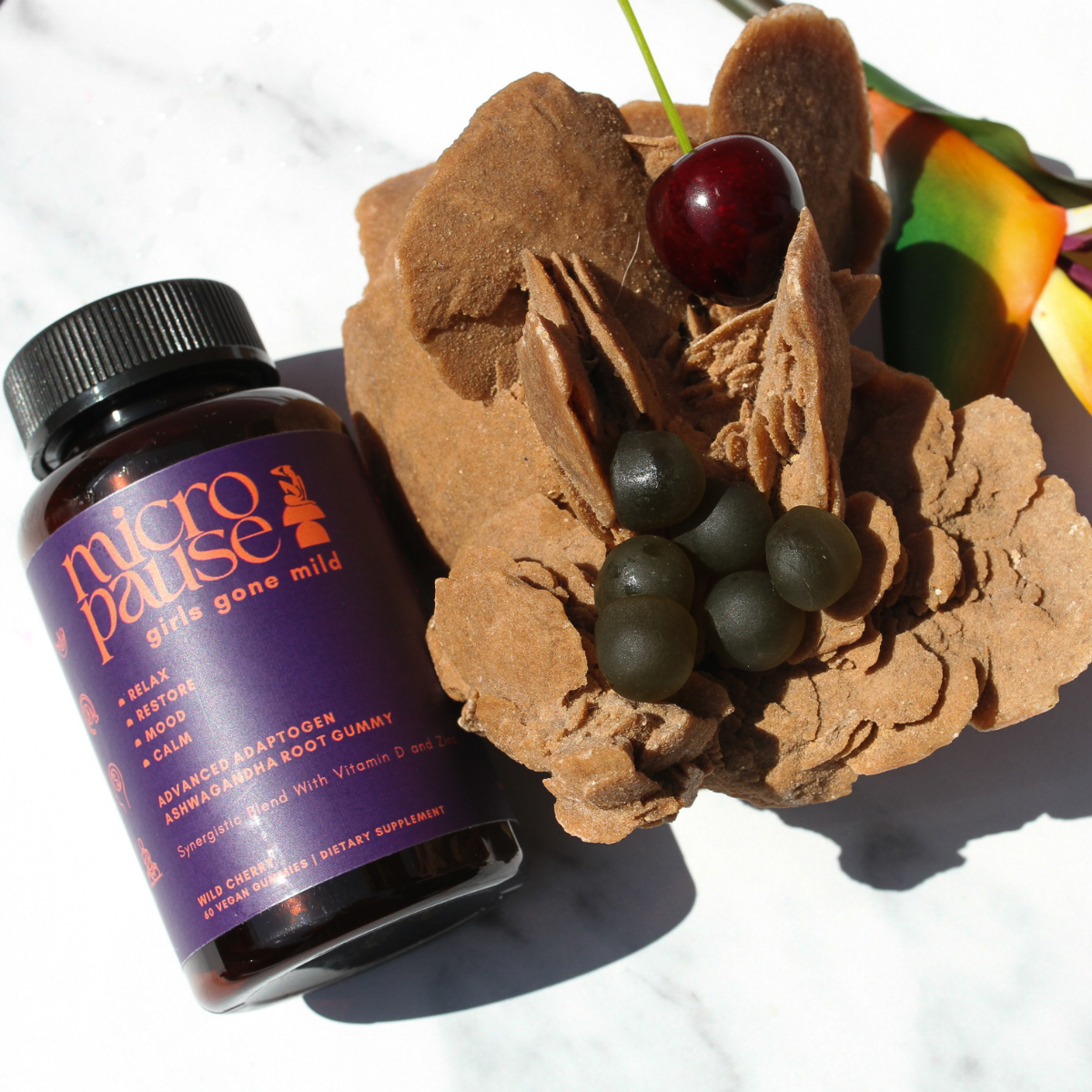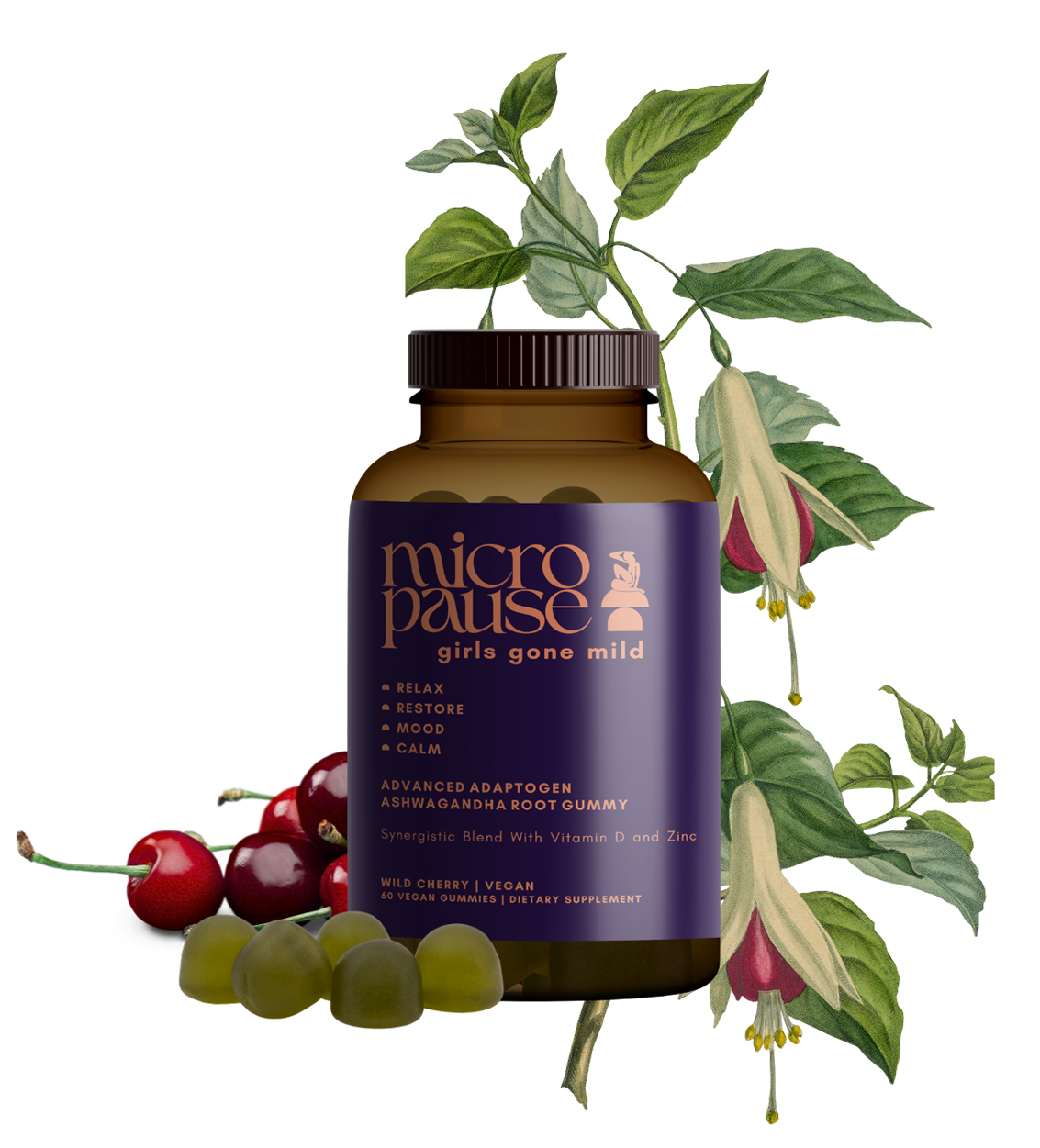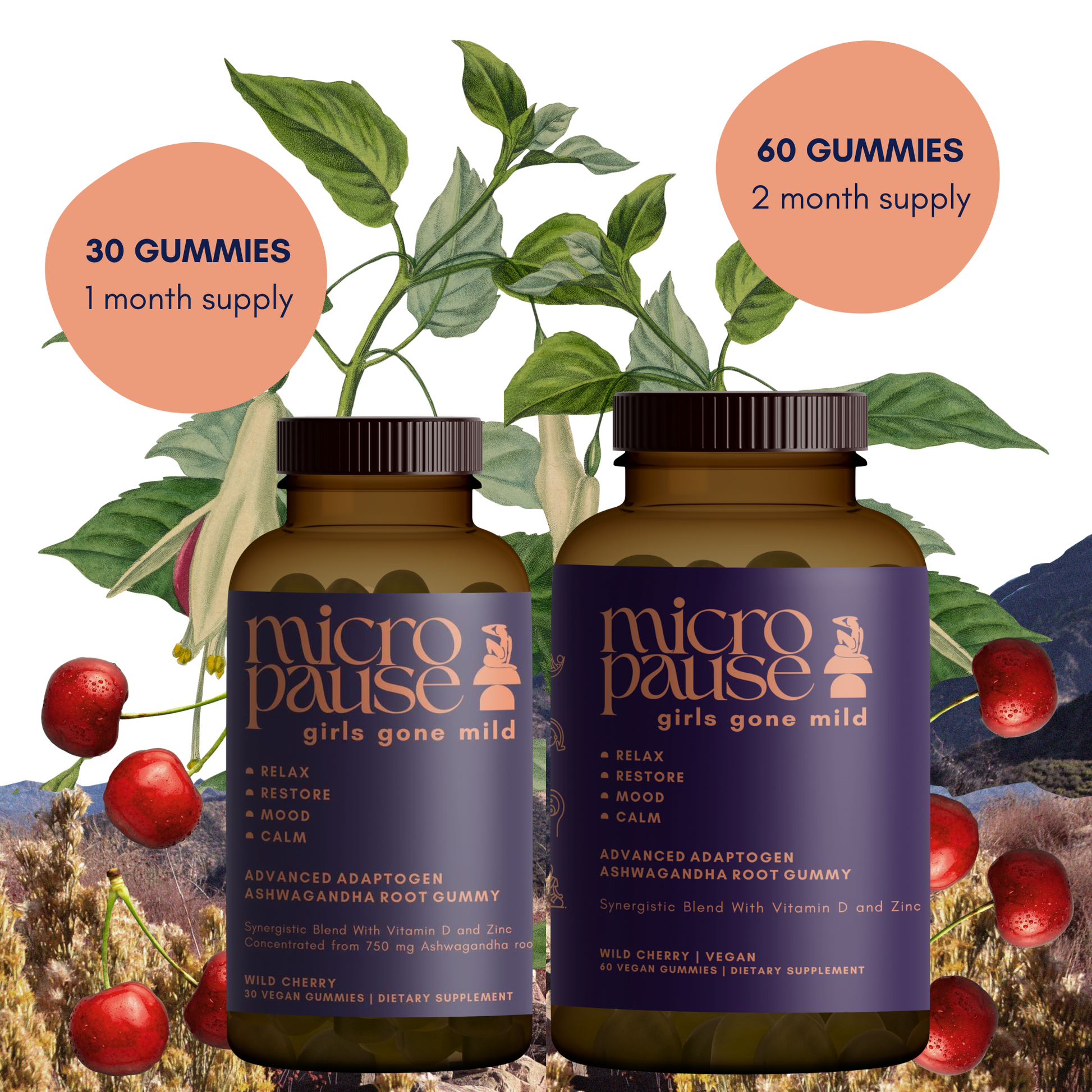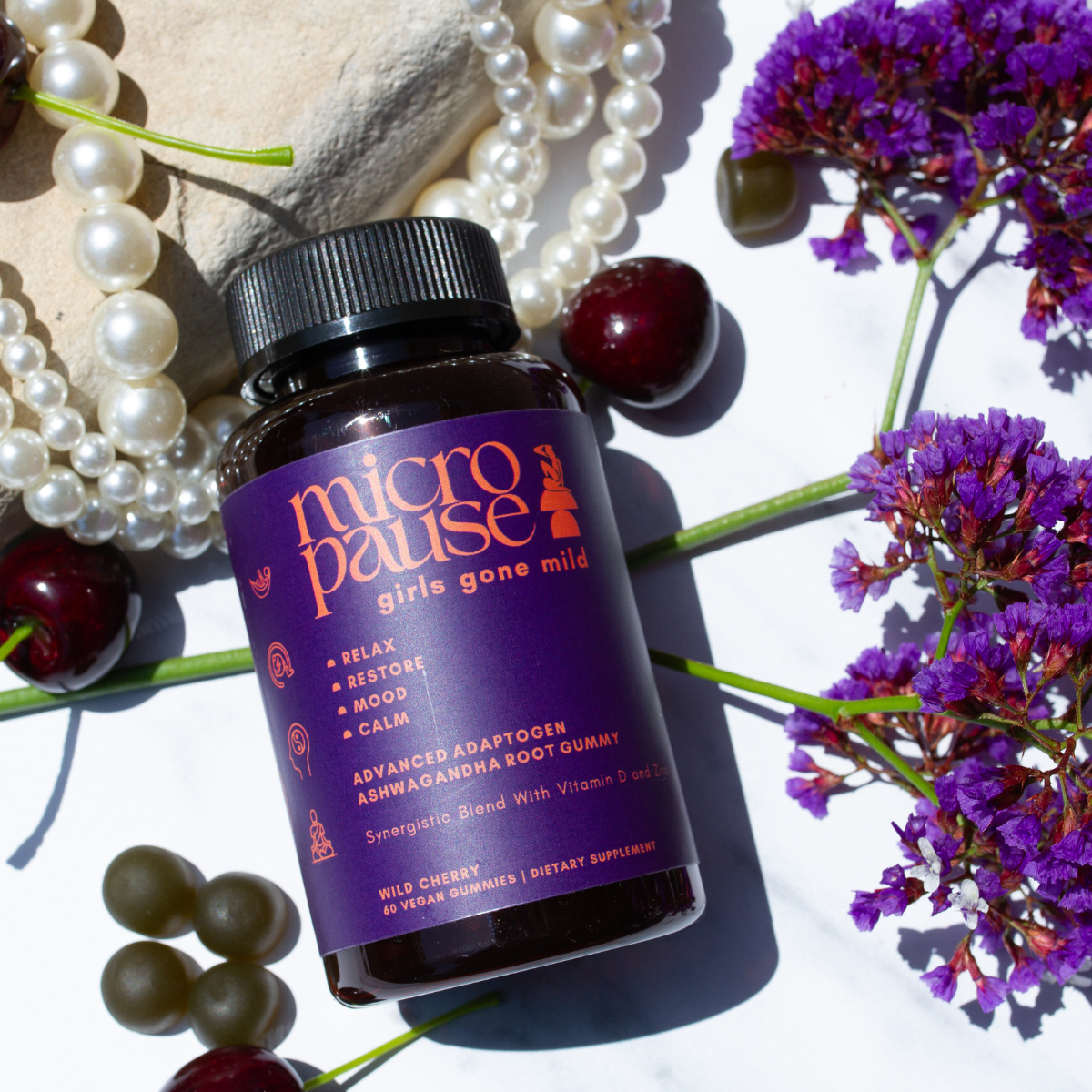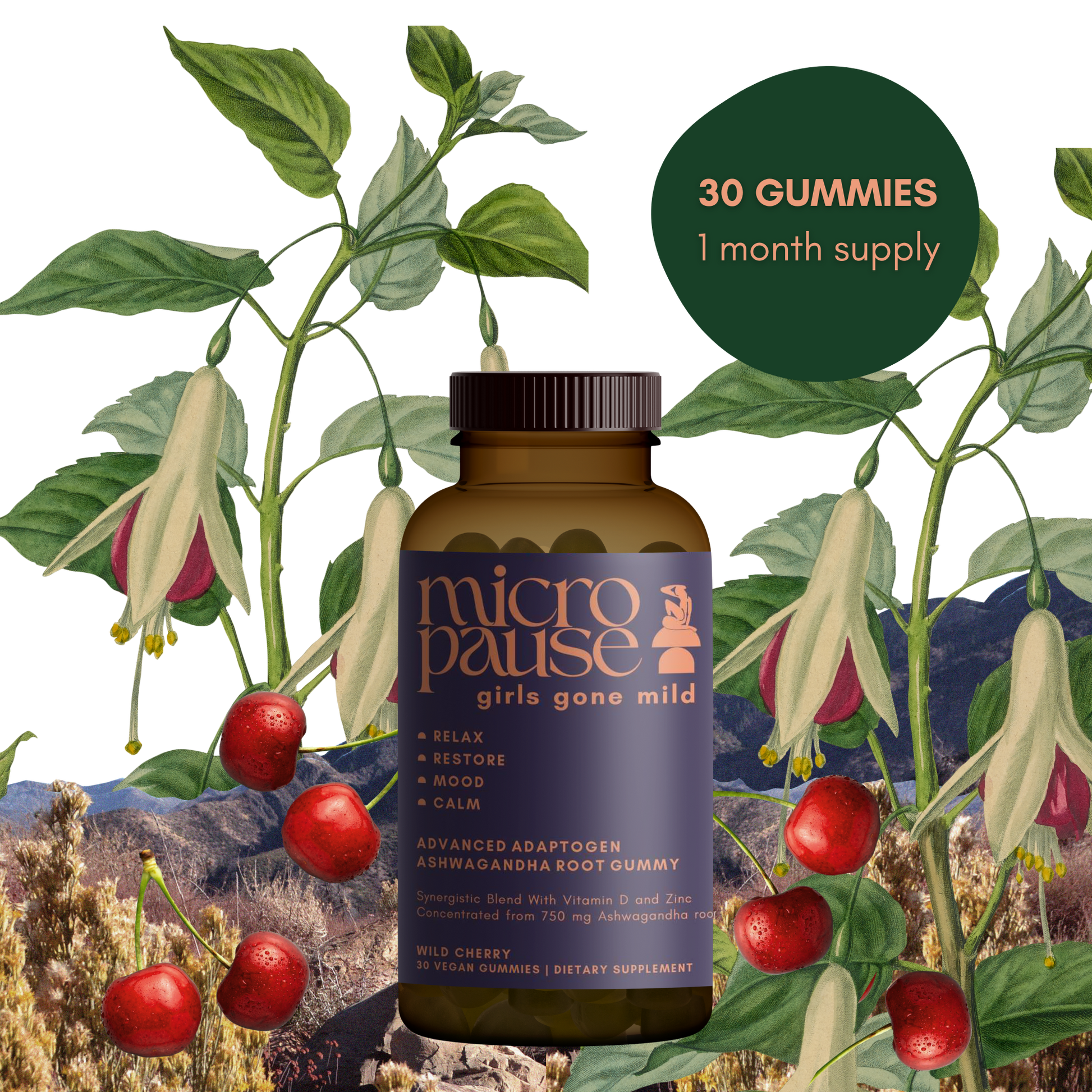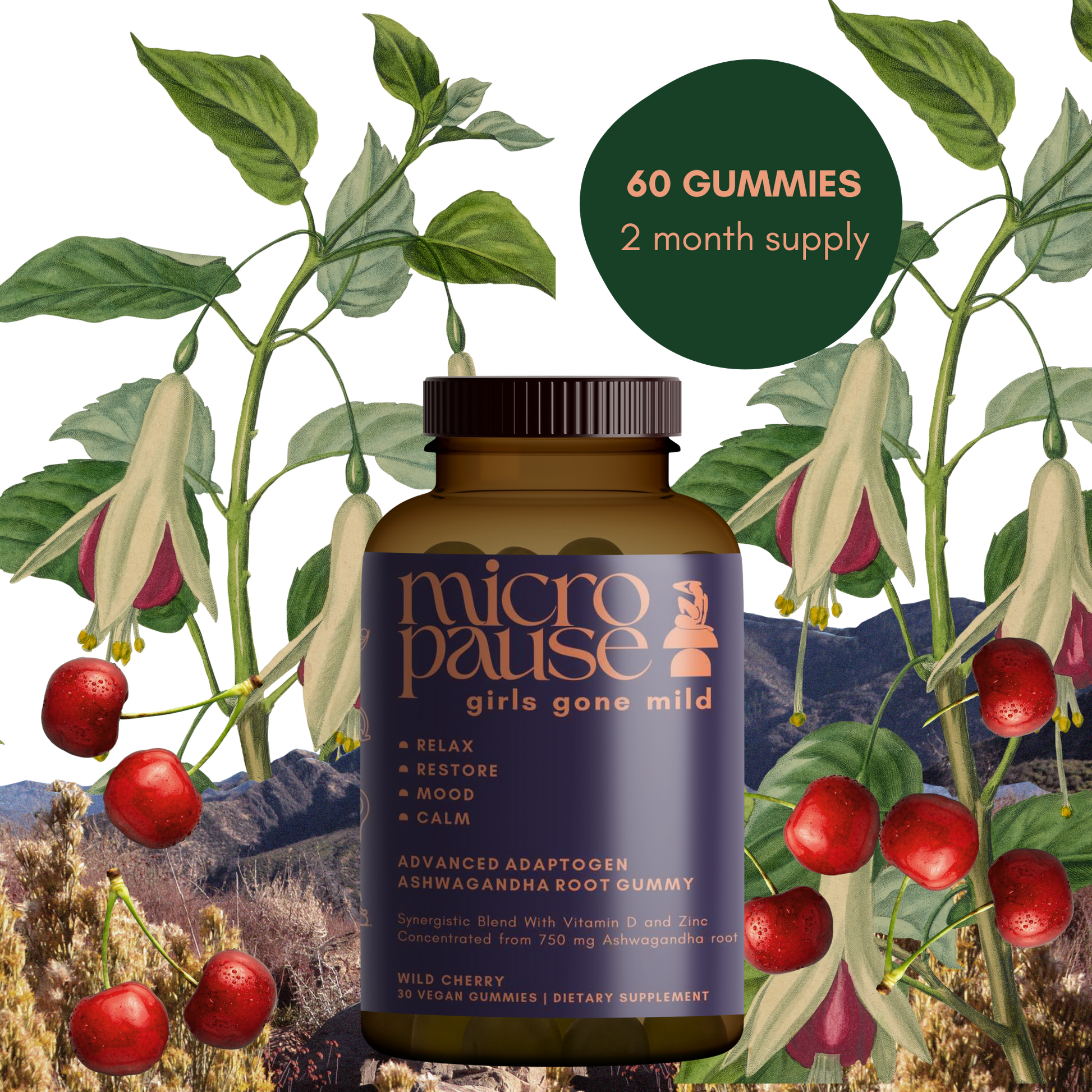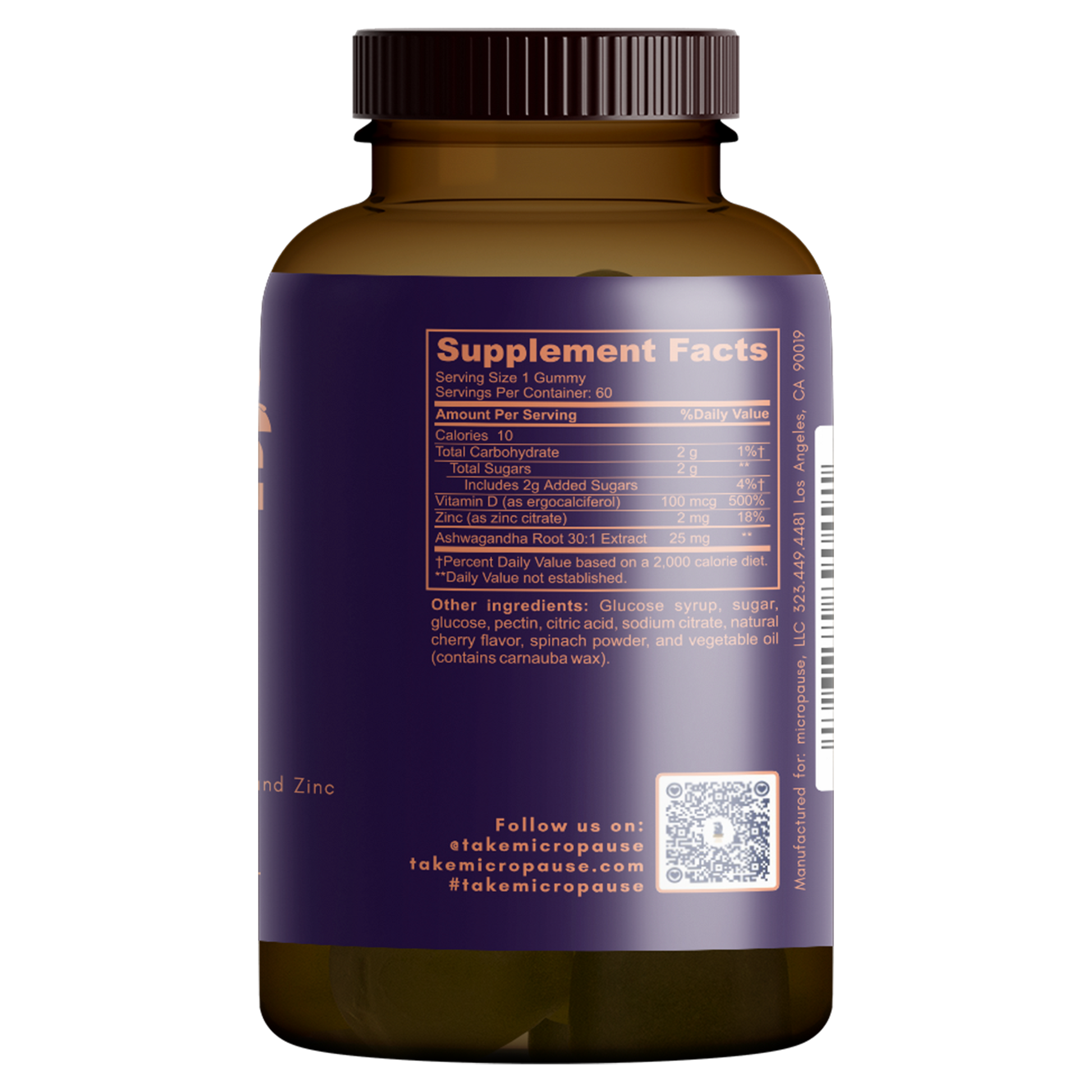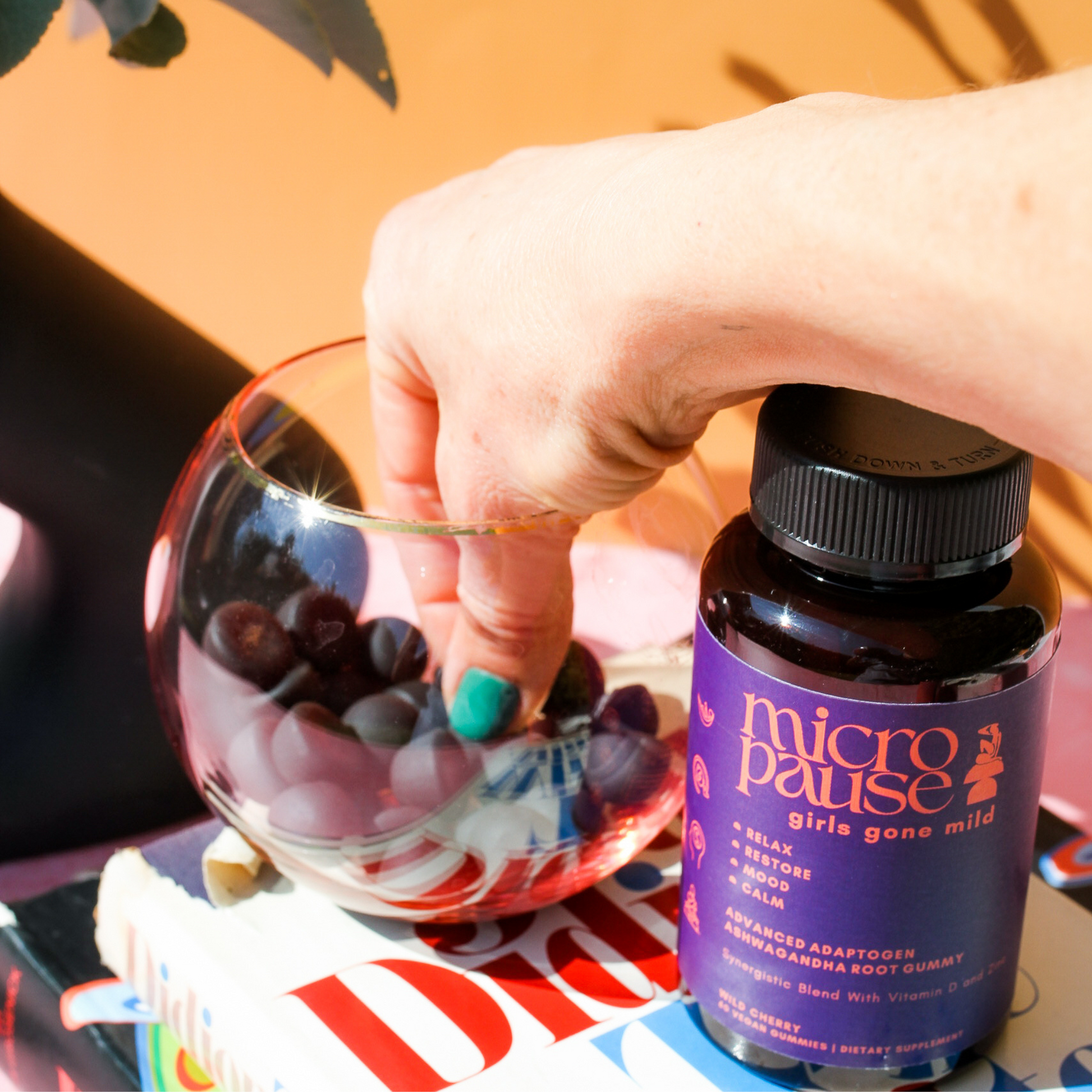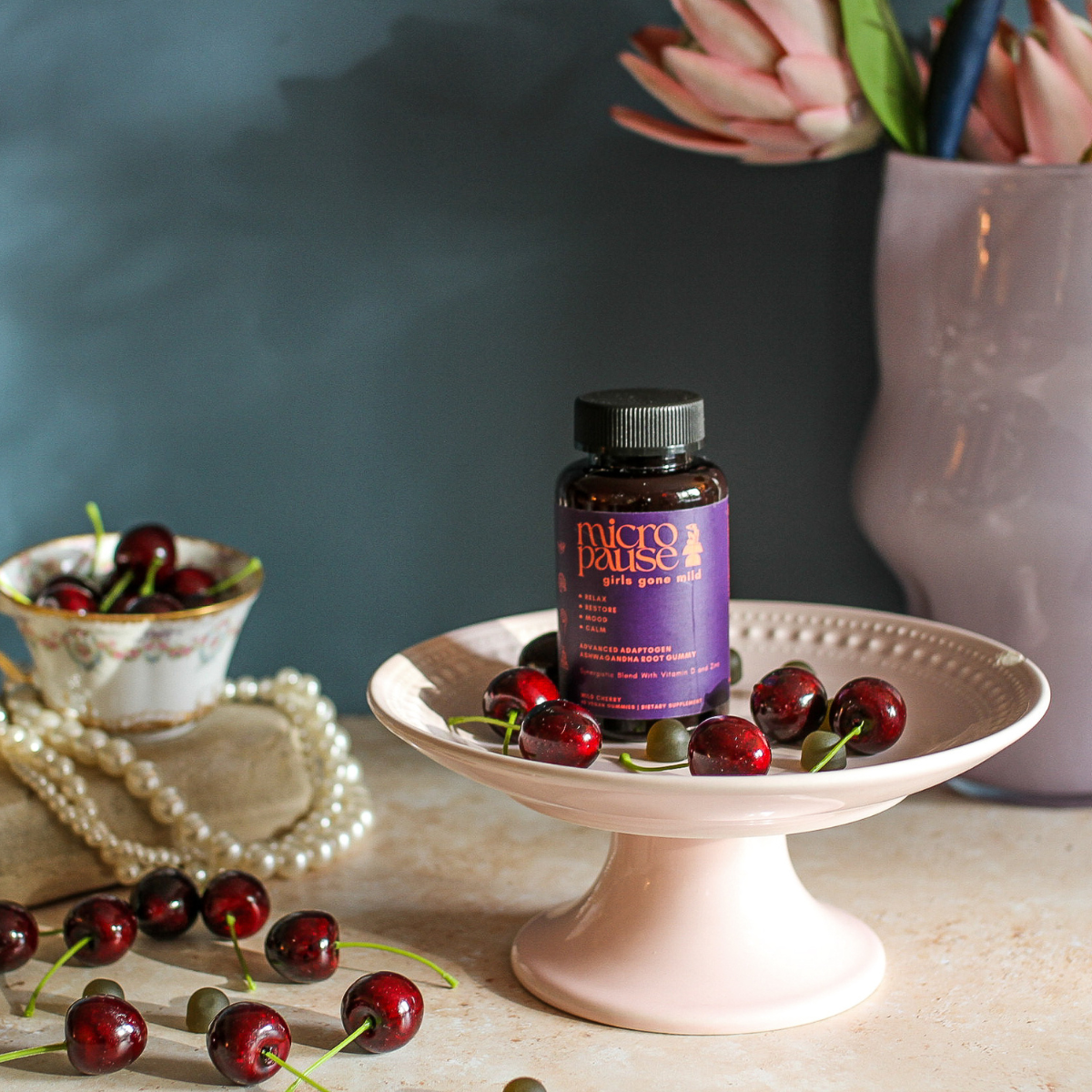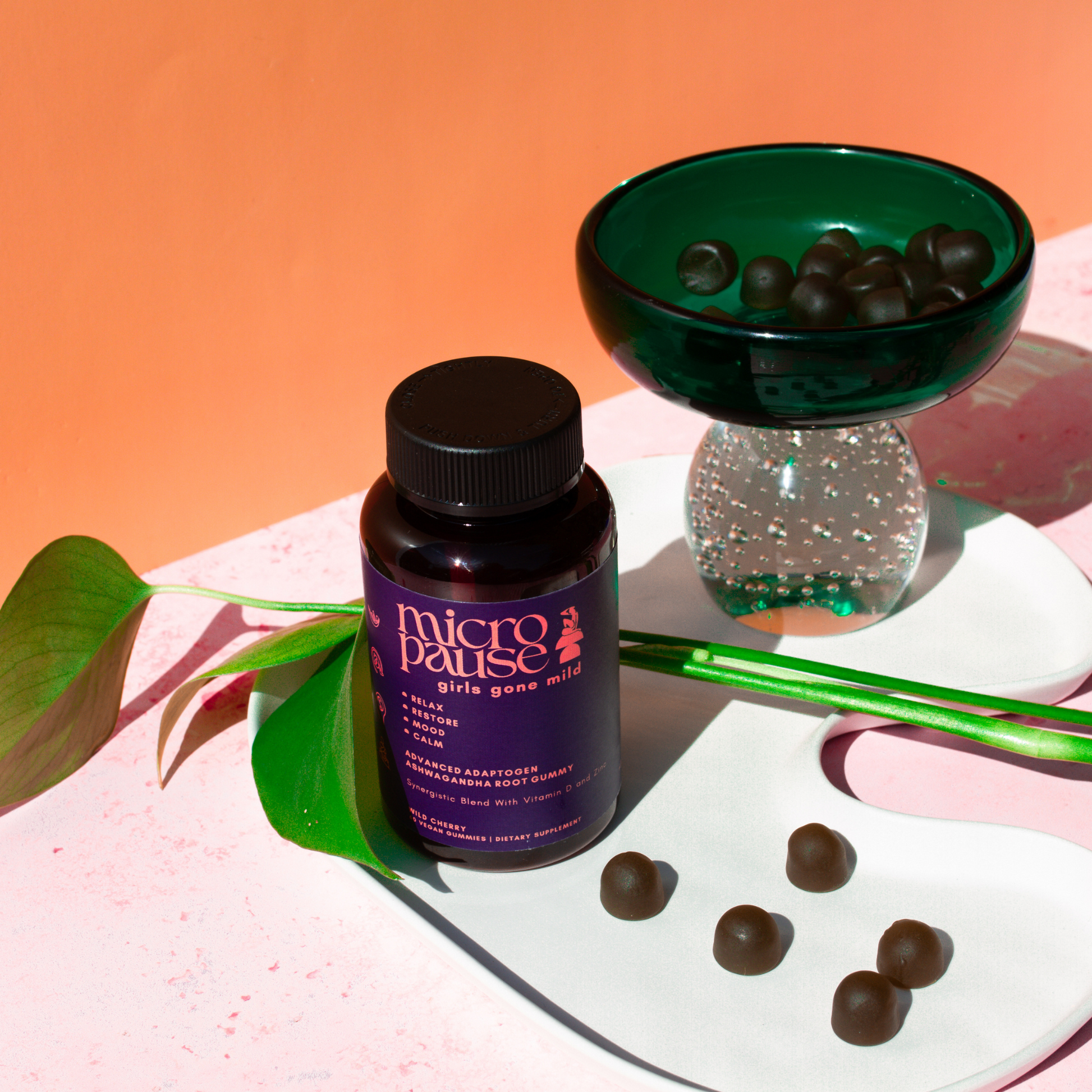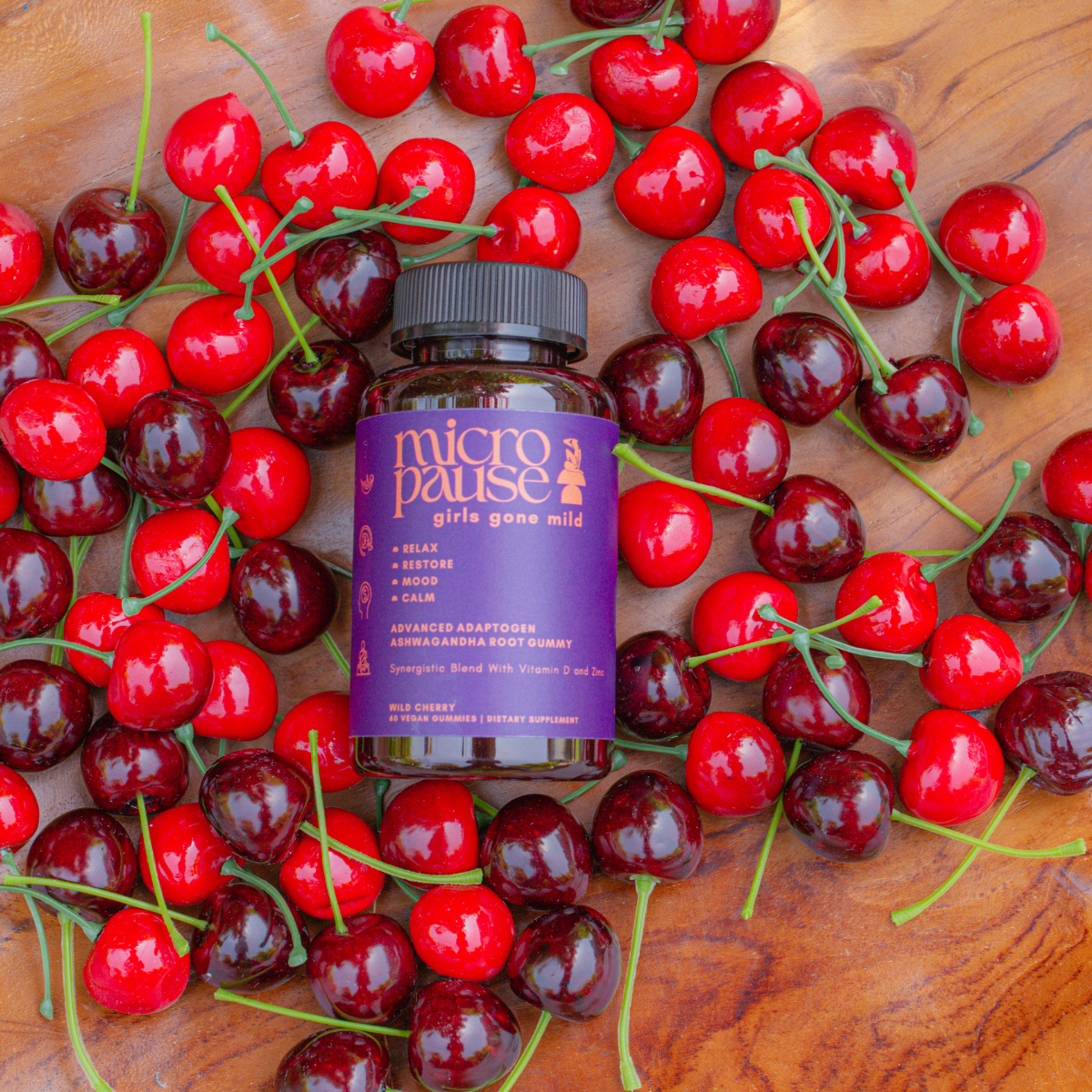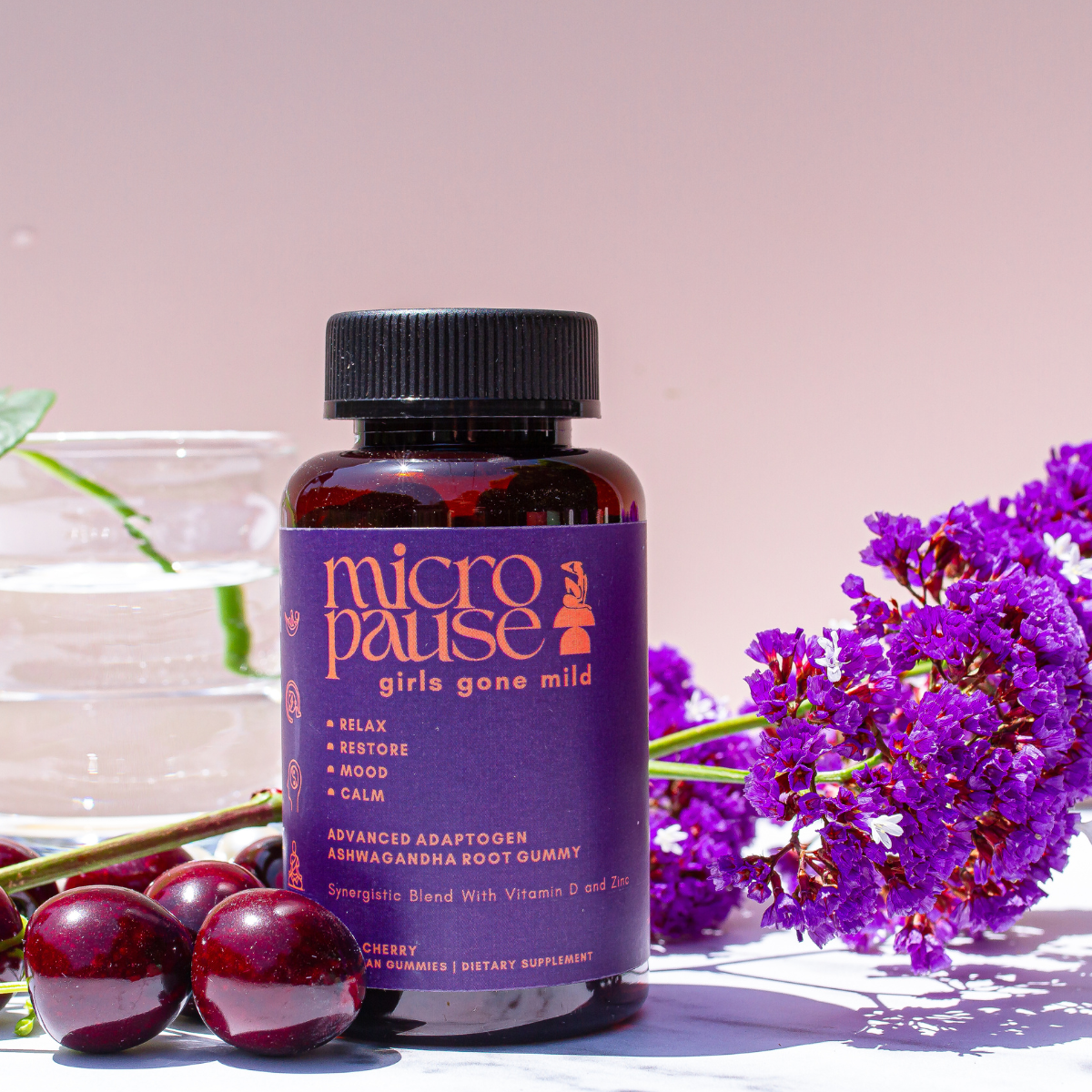
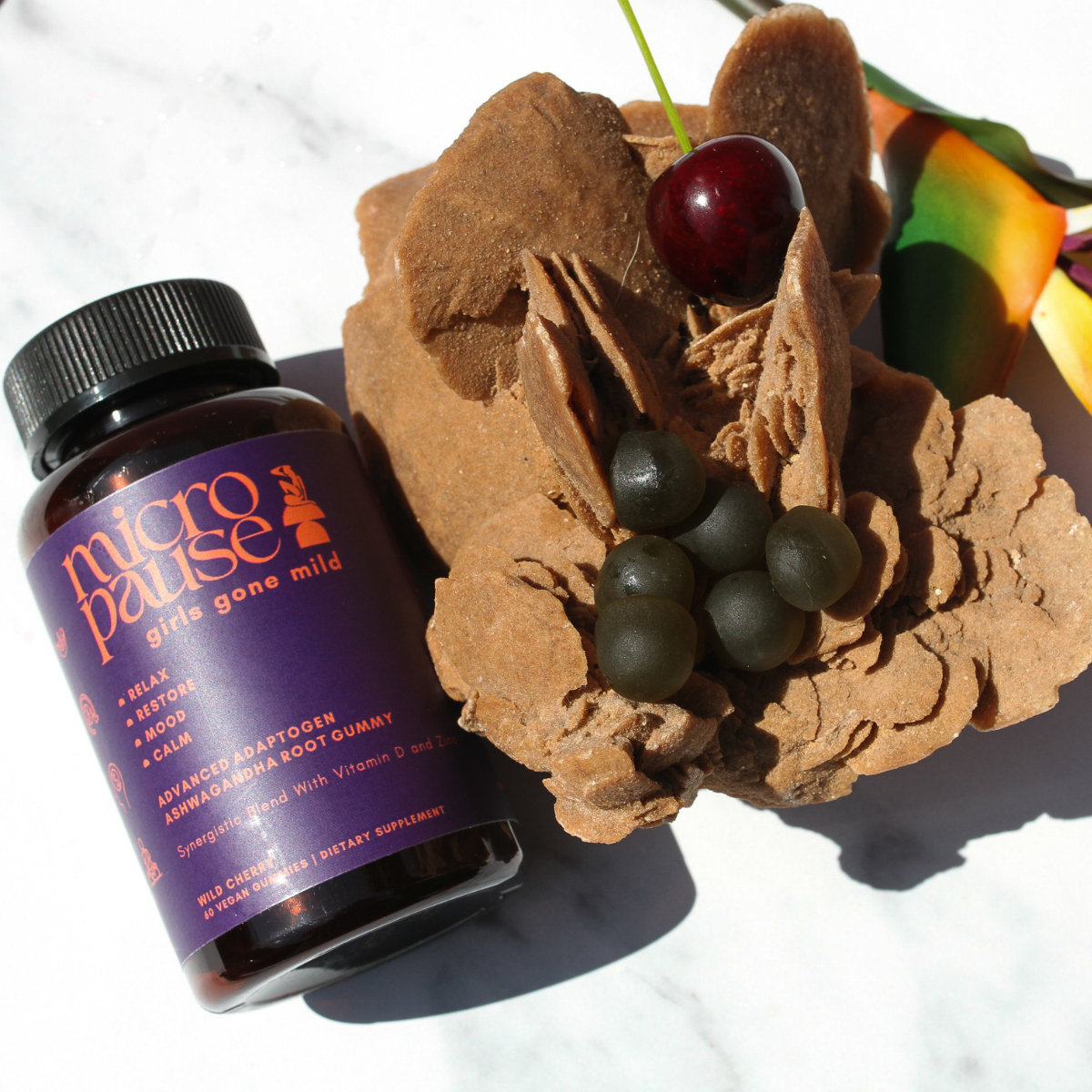

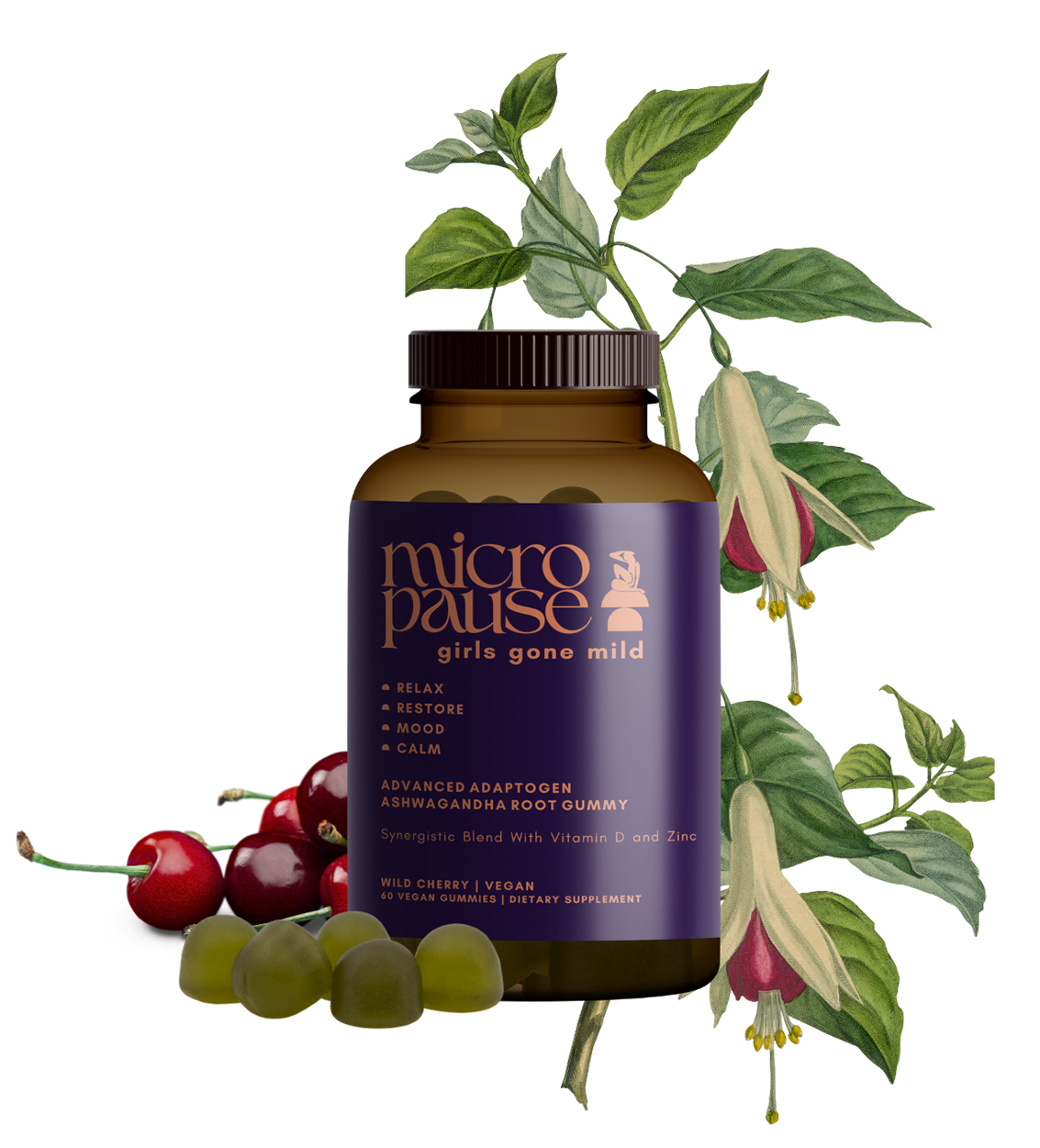
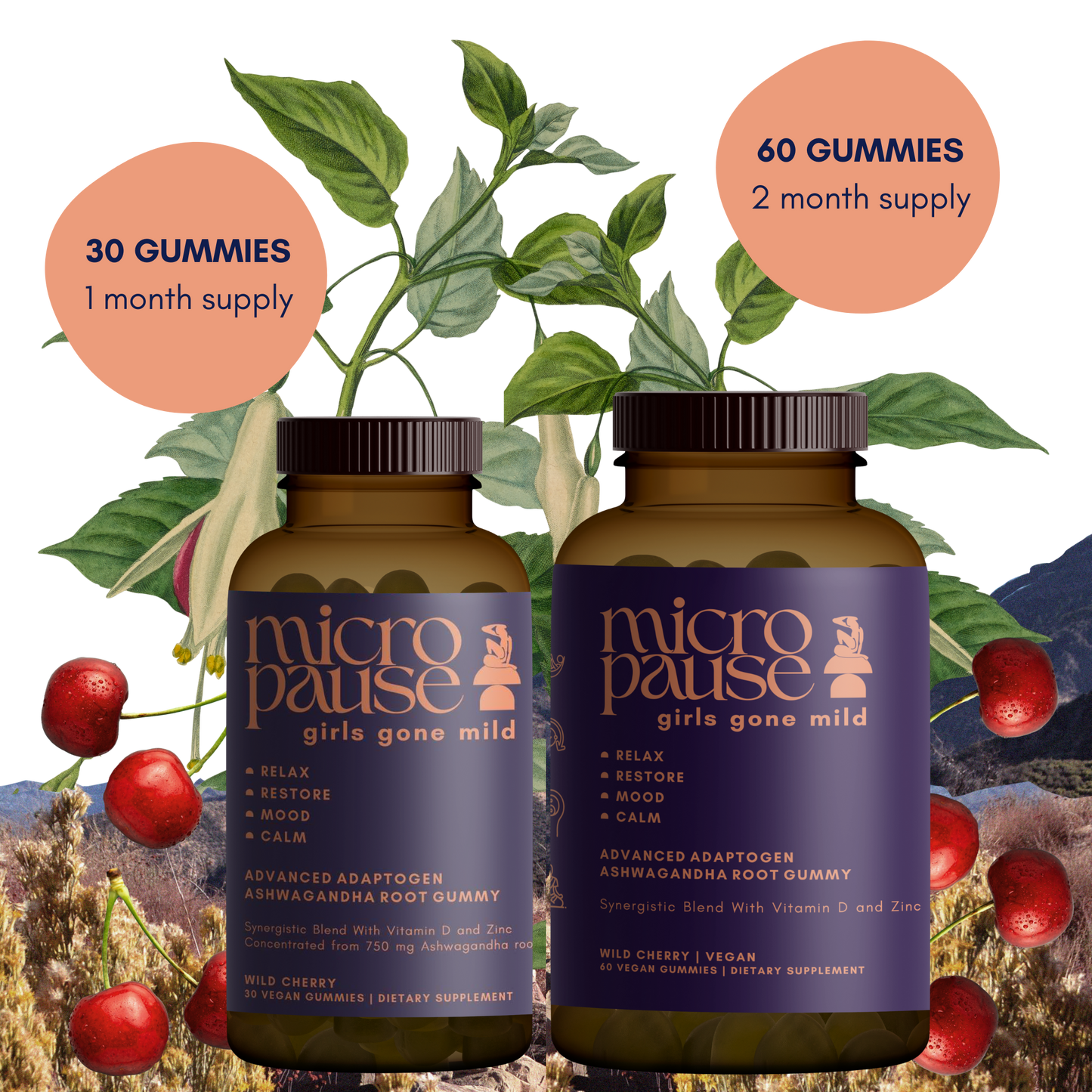
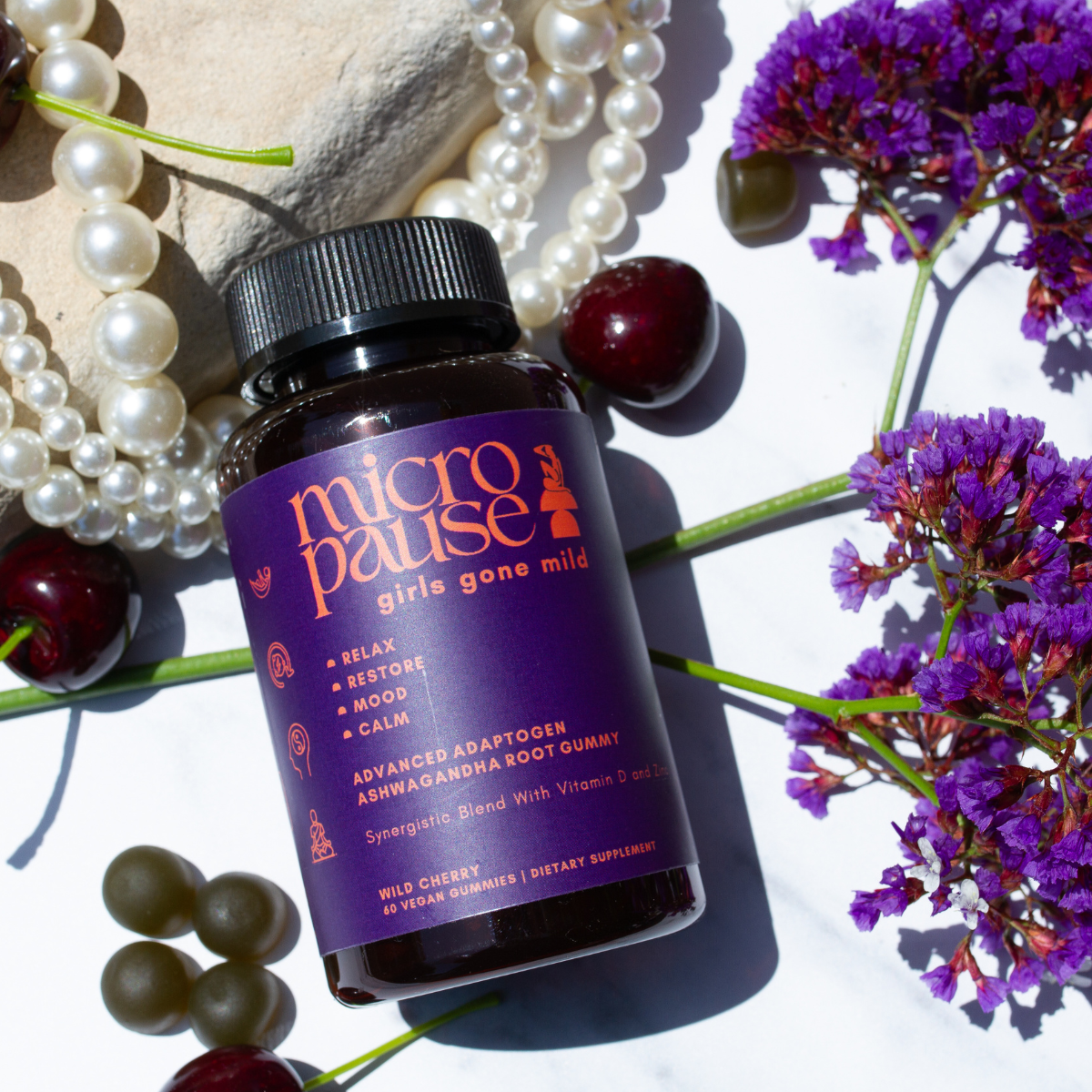
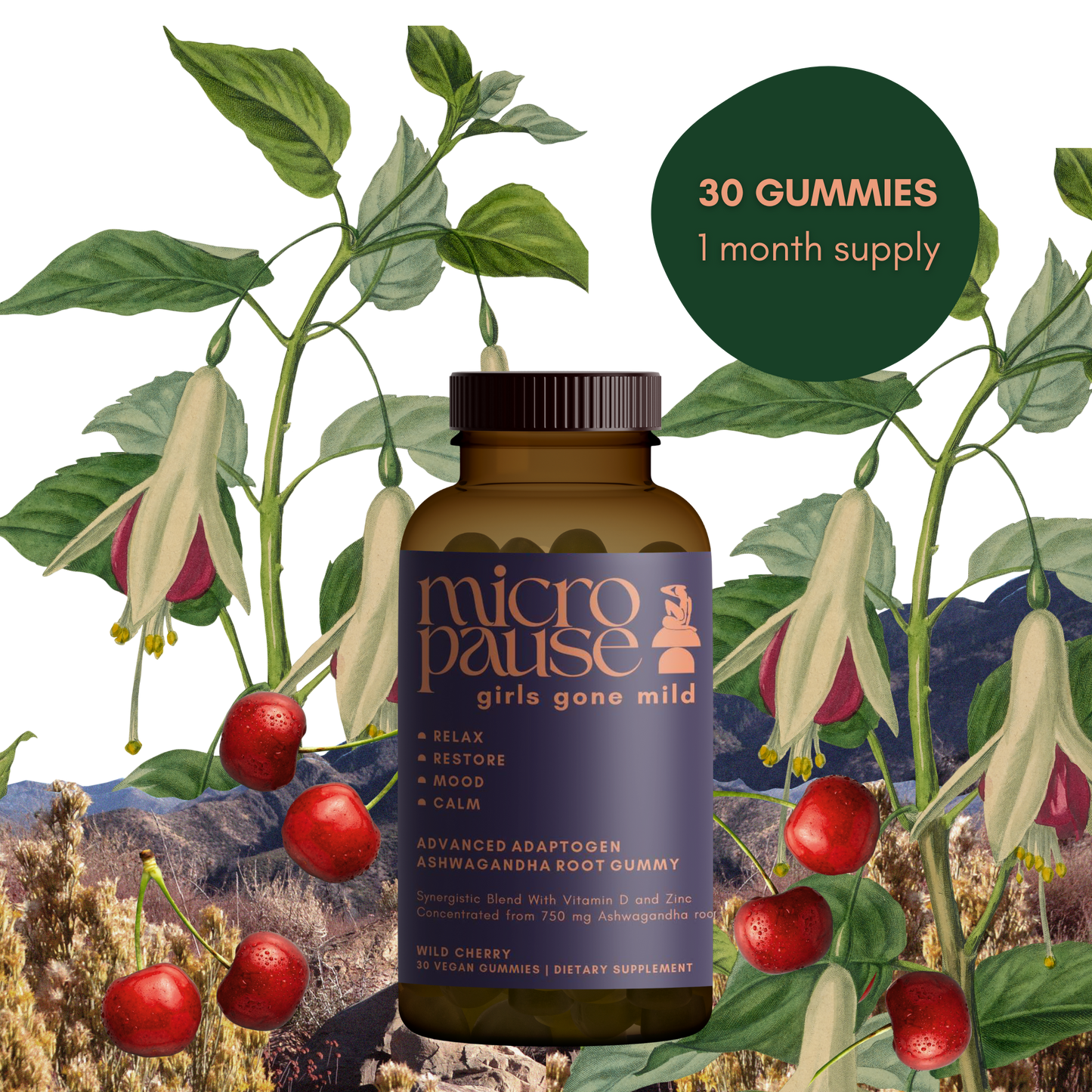
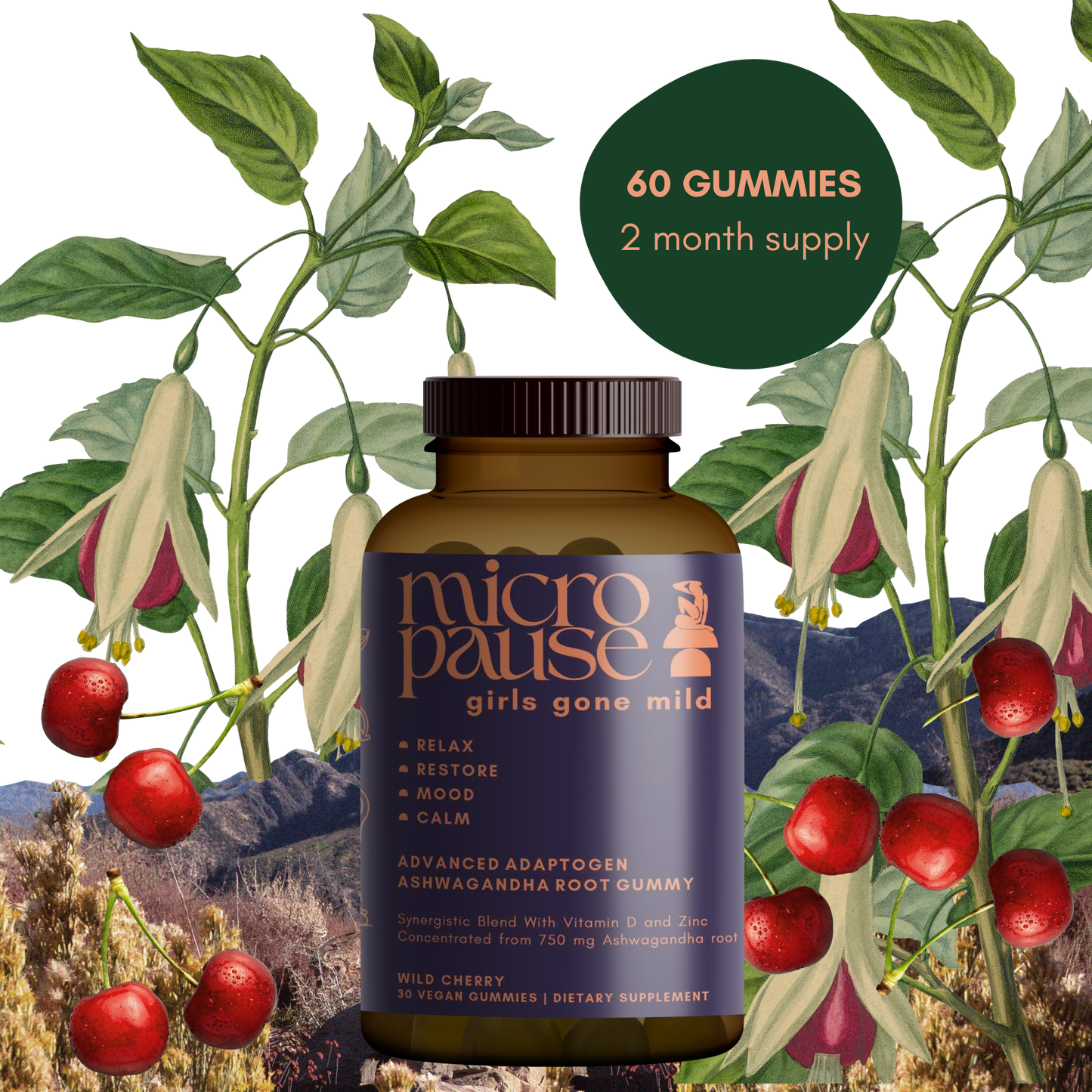
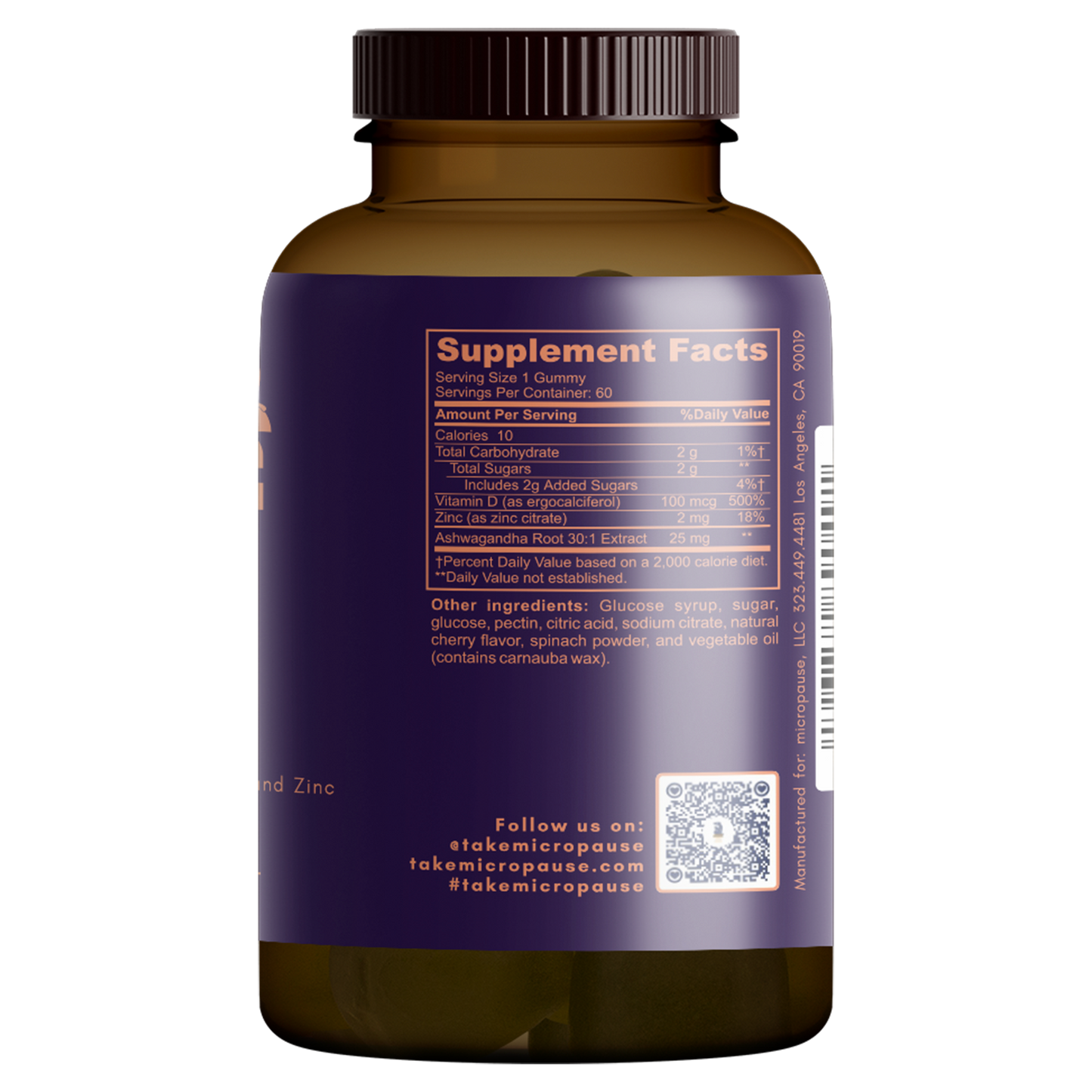
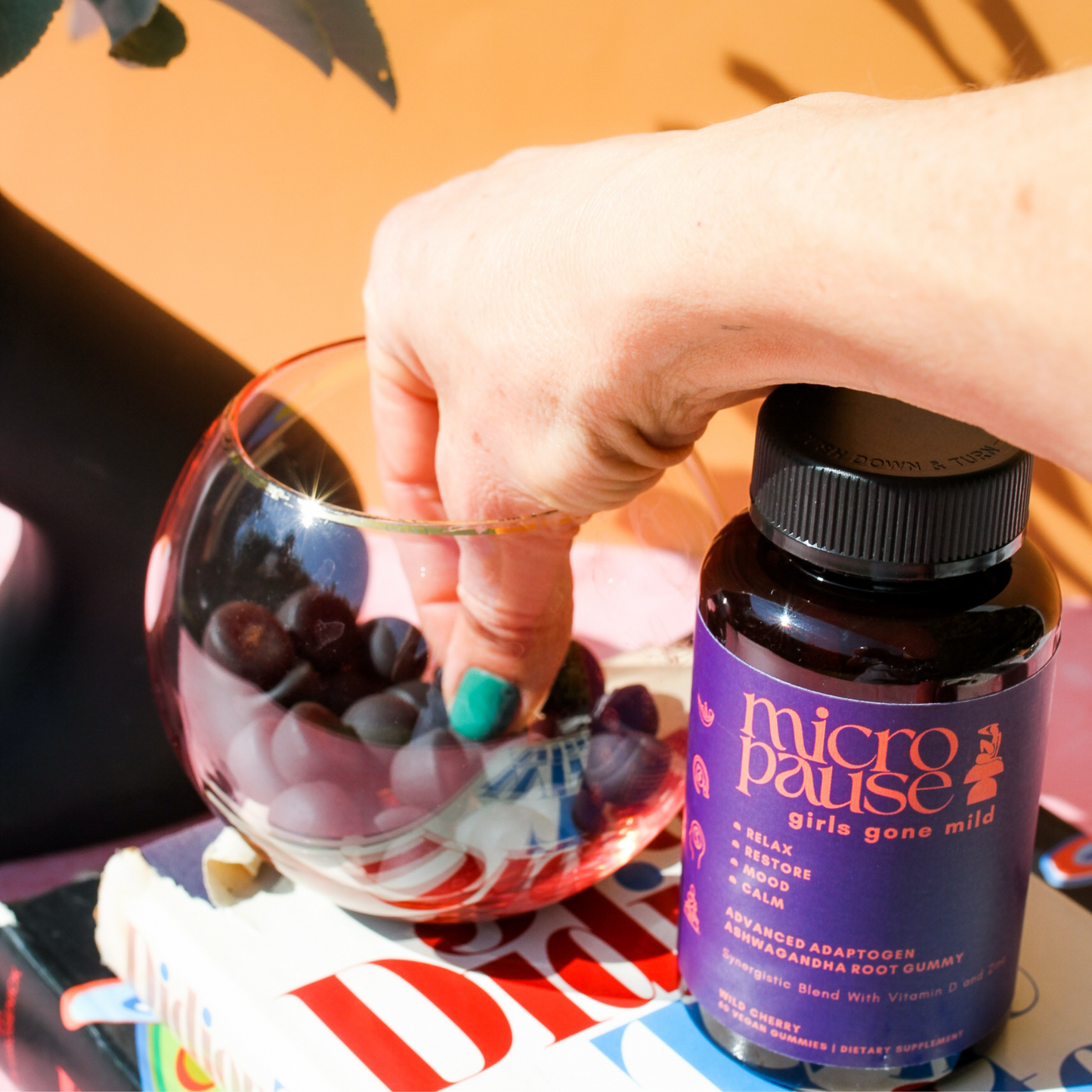
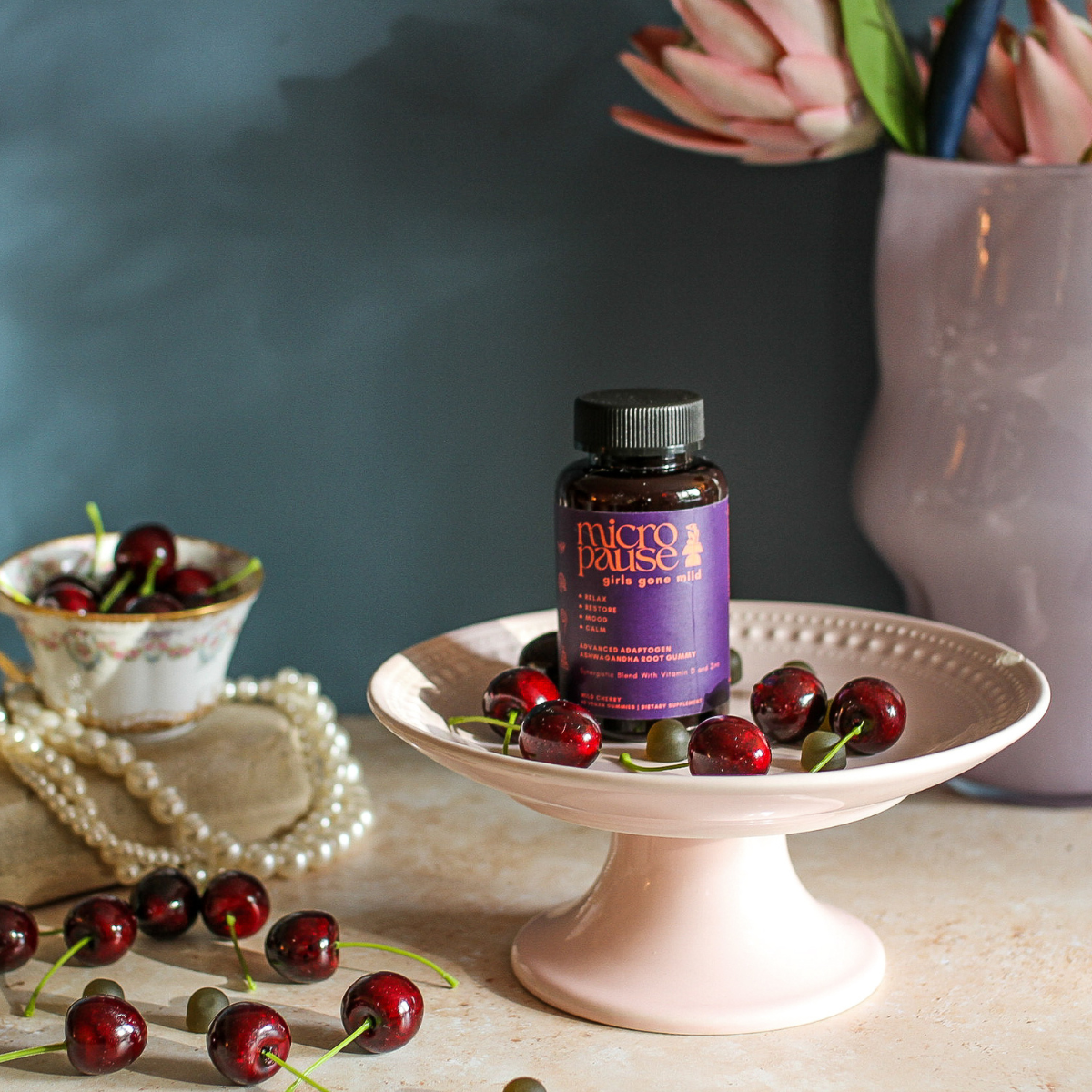
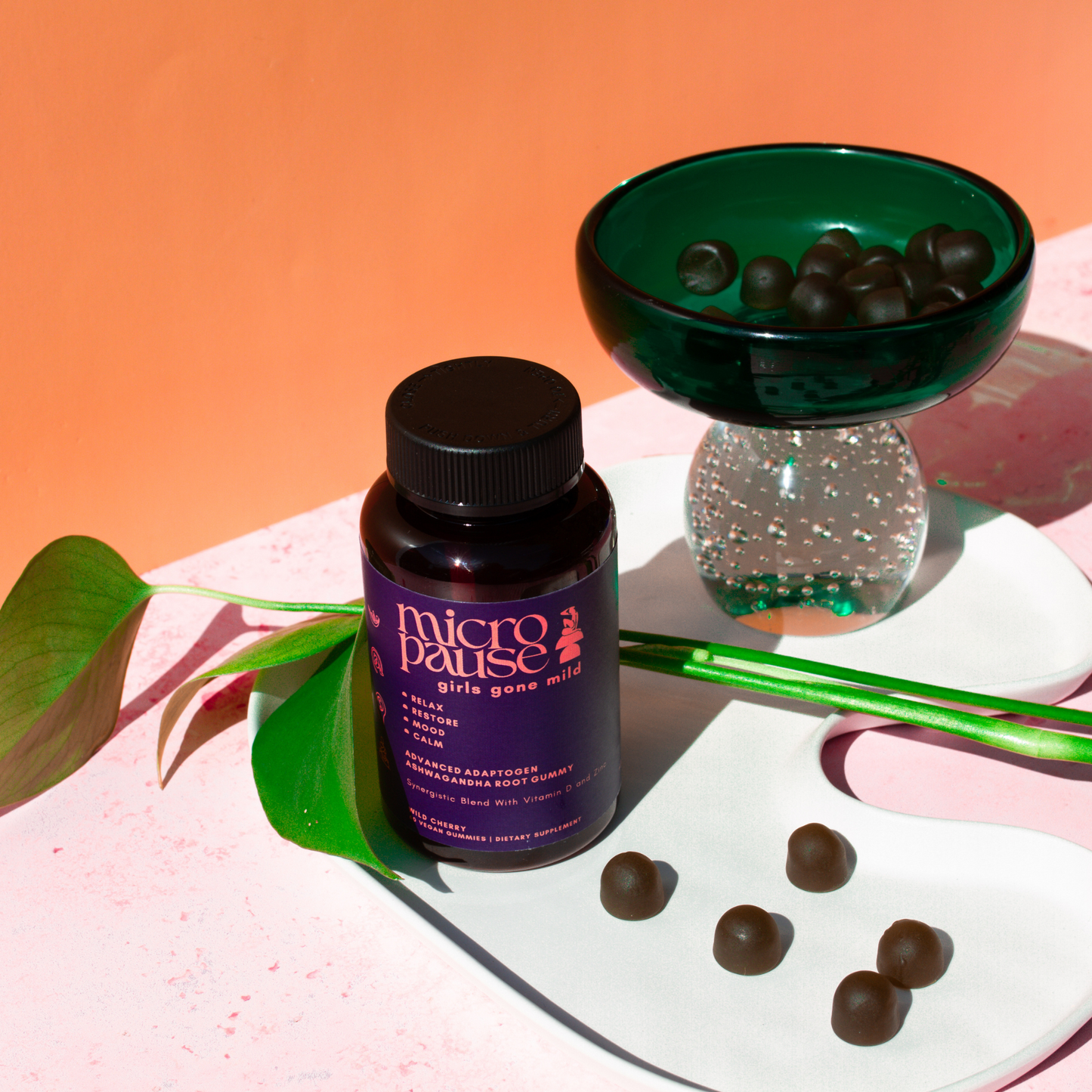
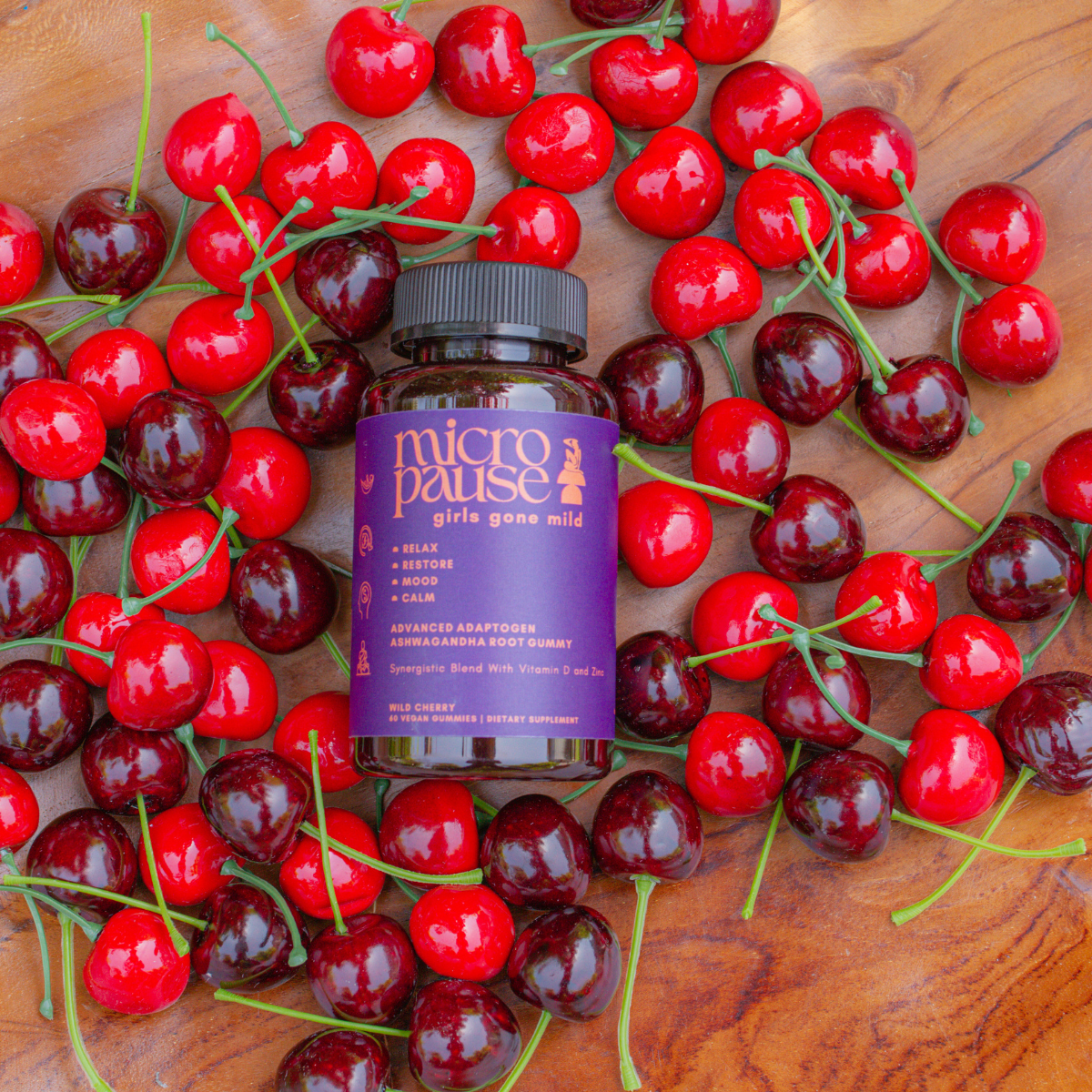
Dive Deeper And Get To Know The Ingredients

Ashwagandha
Ashwagandha is an herbal adaptogenic root commonly used in Ayurvedic medicine to support overall health and wellness. Ashwagandha has been shown to support the body during the transition to menopause by reducing symptoms such as hot flashes, night sweats, mood swings, and anxiety. It has been shown to regulate hormone levels, reduce stress, and improve mood. Additionally, Ashwagandha has anti-inflammatory and antioxidant properties that help improve overall health and support the immune system.
Here are some more of Ashwaghanda’s superpowers.
Mood swings, Anxiety and Depression. Ashwagandha balances your emotion-regulating hormones, like serotonin and dopamine. These hormones make you calmer, which helps us gain better control of our emotions. This aids mood swings, anxiety and depression during menopause.
Sleep troubles. Elevated cortisol, caused by stress, impedes sleep and causes serious sleep problems such as insomnia. When your cortisol is high, your body is always on alert mode, which explains your sleep troubles. Ashwagandha stimulates melatonin production, a hormone that aids in better sleep, as well as releasing calming hormones!
Sluggish metabolism. Your metabolism usually slows down during menopause. As a result, you tend to gain weight. Ashwagandha increases the conversion of T4 hormone into active T3 hormone, which is responsible for boosting metabolism.
Low libido. Loss of sexual desire is a common menopause symptom. There are many reasons for this. Vaginal dryness, anxiety, depression and stress are some of the culprits. Ashwagandha is a powerful aphrodisiac according to the Kama Sutra. It increases reproductive health by promoting better blood circulation to your vagina. This can promote better lubrication and increased sexual sensitivity.
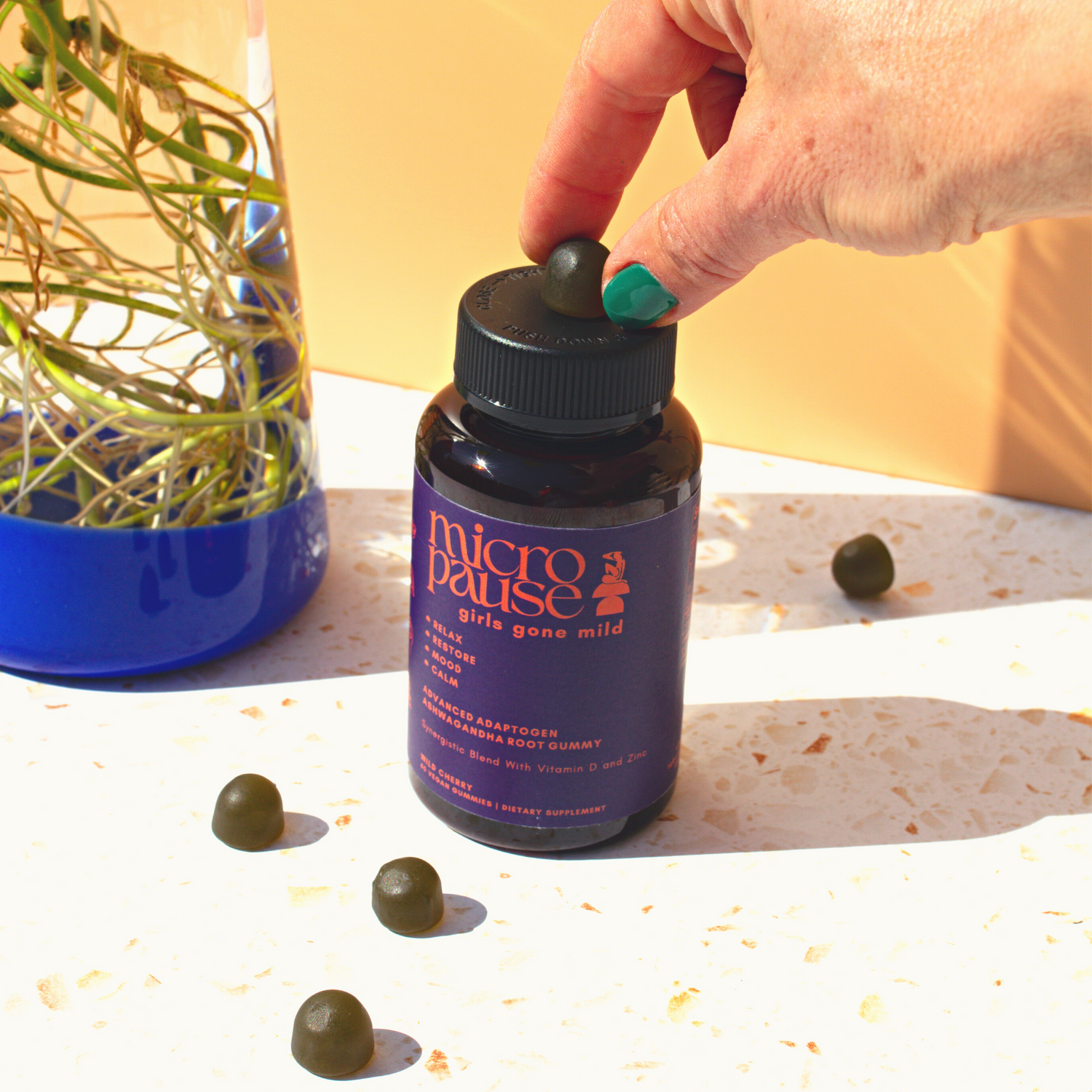
Memory lapses. Ashwagandha helps in reducing memory decline according to a study conducted by the National Institutes of Health. The herb protects the brain from oxidative stress and halts neuro-degeneration. To experience memory improvement, you need to take this herb daily.
Reducing stress and anxiety. Ashwagandha may help to reduce stress and anxiety by decreasing the levels of stress hormones in the body and improving the ability to cope with stress.
Improving brain function. Some research suggests that ashwagandha may help to improve memory and cognitive function. Reducing inflammation: Ashwagandha has anti-inflammatory properties and may be helpful in reducing inflammation in the body.
Ashwagandha, promotes a normalizing influence on the body, without over-stimulating or inhibiting the normal body function — instead, it gives off an overall tonifying effect!
This means that the herb doesn’t really have a specific effect, but it is effective in maintaining our body’s balance.
So, how can this herb help us in menopause?
First, Ashwagandha acts on our adrenal glands by recharging them. During menopause, the dance of hormones can come in full swing. Our hormones can drop or increase at any given time, causing menopause symptoms. Ashwagandha helps our adrenal glands to function at an optimum level, preventing hormonal imbalance. Our adrenal glands produce just enough estrogen, progesterone and cortisol (stress hormone) with the help of this herb.
According to a study by the University of Buffalo, menopausal women who experienced hot flashes had high IL-8 (Interleukin-8). This is a type of protein that the body releases when it is under stress. This also happens when estrogen decreases. Ashwagandha neutralizes this protein. This can be a potential explanation why the herb is an effective solution to hot flashes.
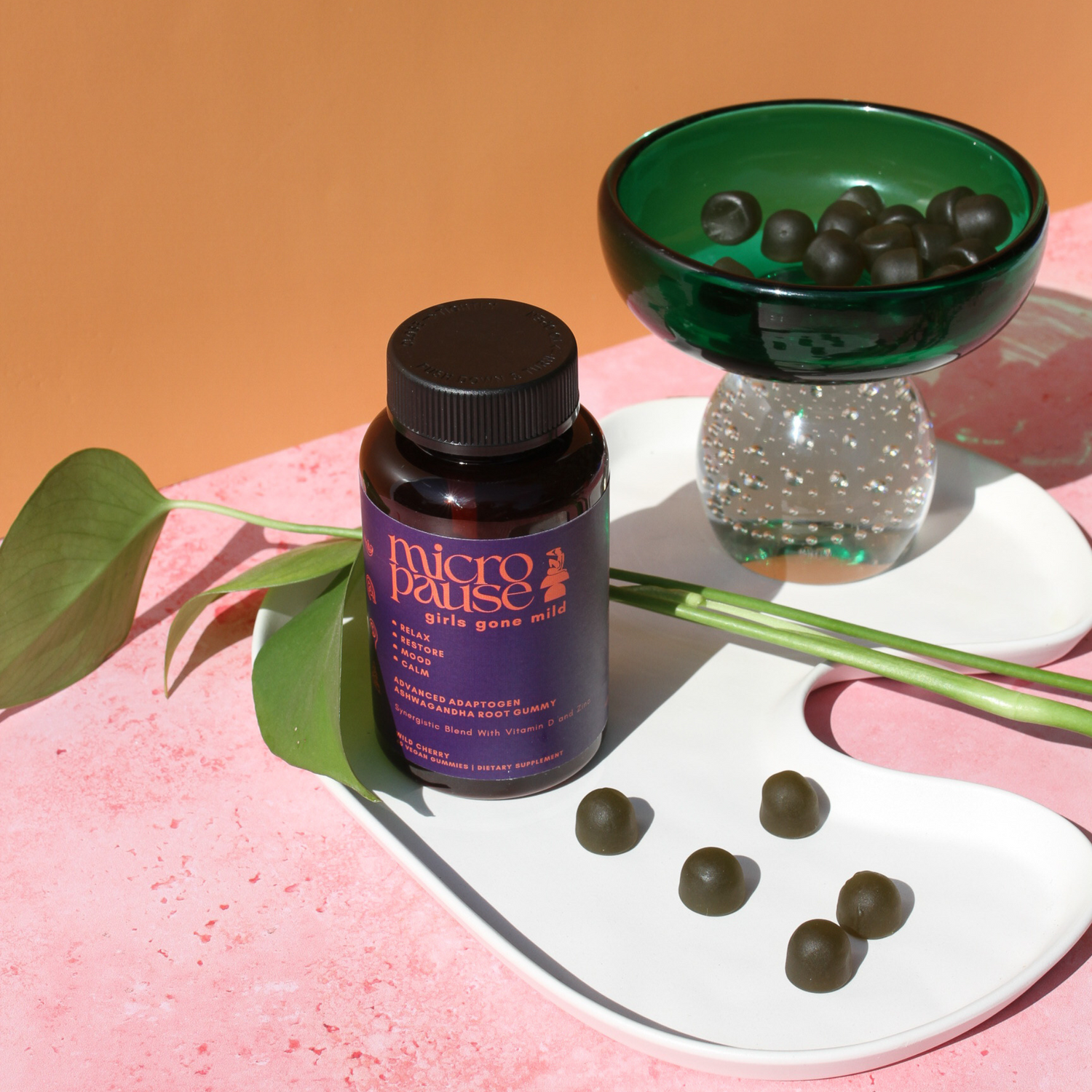
Aside from all these, healthy adrenal glands mean that they can balance the secretion of our emotion-regulating hormones such as serotonin, dopamine and endorphin. These three hormones, when imbalanced, can cause anxiety, depression and mood swings, which are common menopause symptoms.
In a study by the Indian Journal of Medical Research, Ashwagandha mimics the activities of GABA (Gamma-Amino Butyric Acid). This neurotransmitter is a natural tranquilizer. It relaxes the mind and body. Since Ashwagandha can stimulate GABA activity, menopausal women will generally feel calmer and better.
Ashwagandha delays degenerative changes in our bones. When we go through menopause, or as we age, we tend to be more prone to osteoporosis or osteoarthritis. Estrogen fluctuation is not the only explanation. One study claims that women have preconditions that can place them at more risk of osteoporosis or osteoarthritis.
Before we reach menopause, we have regular periods every month and we lose about 70 ml of blood each time. To replenish this loss and maintain enough circulating blood, our body increases hematopoietic activity ─ the creation of new blood.
For hematopoietic cells to create new blood, it needs spaces inside our bones where it can work. To accommodate this need, our osteoclasts responsible for breaking down our bones will also increase their activity. This is to provide a space for hematopoiesis. With many holes or spaces forming within our bones, we can develop osteoporosis. However, by taking Ashwagandha, you can balance bone breakdown and bone formation, thus preventing the condition.
According to a write-up by drugs.com, the herb also has anti-inflammatory and antipyretic effects. It prevents swelling, redness and pain, which are characteristics of inflammation. Arthritis pain is reduced with the help of this superfood. With its antipyretic property, it can relieve fevers and regulate body temperature. t is thought to have a calming effect on the mind and body, which may help to reduce anxiety and improve sleep.
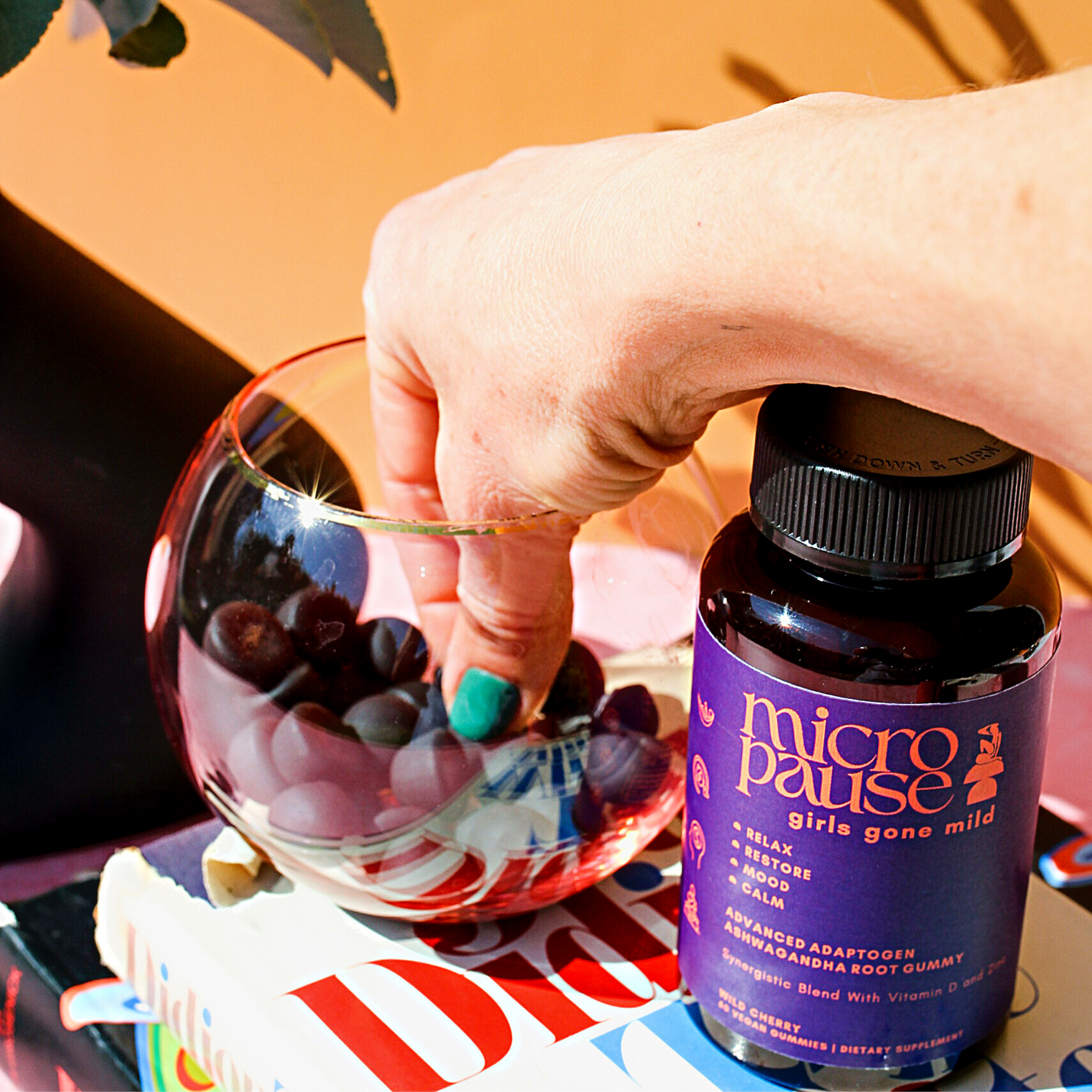
Vitamin D and Zinc
Vitamin D and Zinc are two essential nutrients that play crucial roles in supporting women's health during peri-menopause, menopause, and beyond. Vitamin D is known for its role in bone health, and it helps the body absorb calcium and phosphorus. Women going through menopause often experience a decrease in bone density, making us more susceptible to fractures and osteoporosis. Vitamin D can help maintain healthy bone density levels and reduce the risk of fractures. Additionally, research has shown that vitamin D may help regulate mood and reduce the risk of depression, which is a common symptom experienced by women during menopause.
Zinc is another essential nutrient that is particularly important for women going through menopause. This mineral is involved in numerous processes in the body, including immune function, wound healing, and DNA synthesis. Zinc is also important for hormonal balance, as it helps to regulate the production of estrogen and progesterone. Menopausal hormonal imbalances lead to a range of symptoms, including hot flashes, mood swings, and vaginal dryness. Ensuring adequate Zinc intake can help support hormonal balance and alleviate these symptoms. Additionally, zinc is also important for maintaining healthy skin and hair, which is also beneficial during this time.
